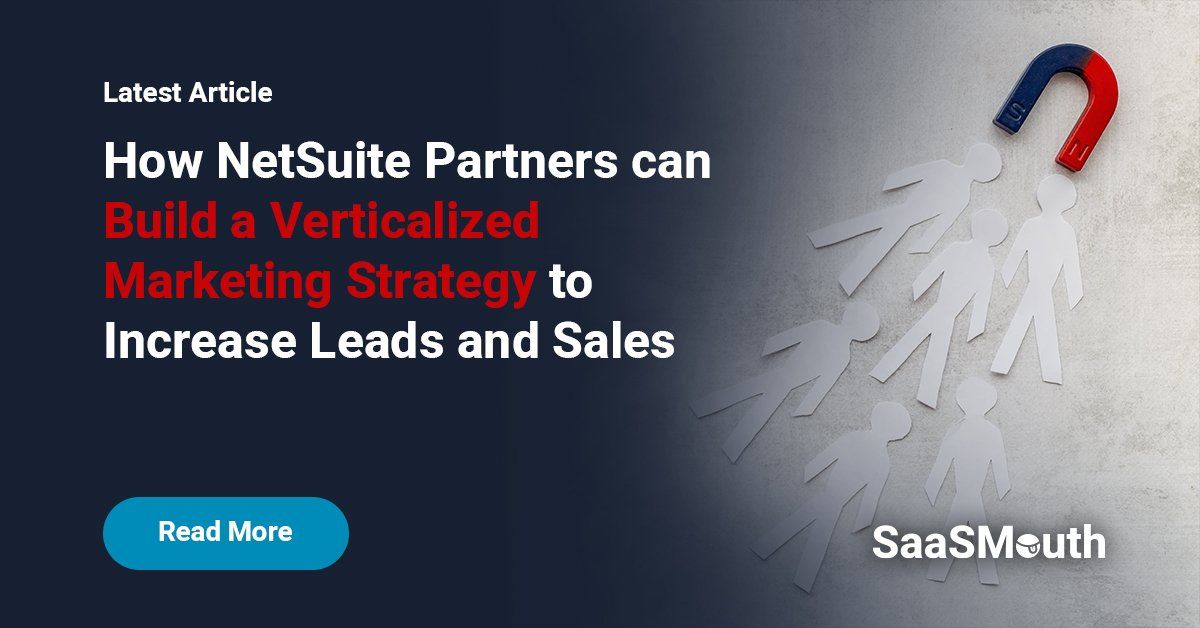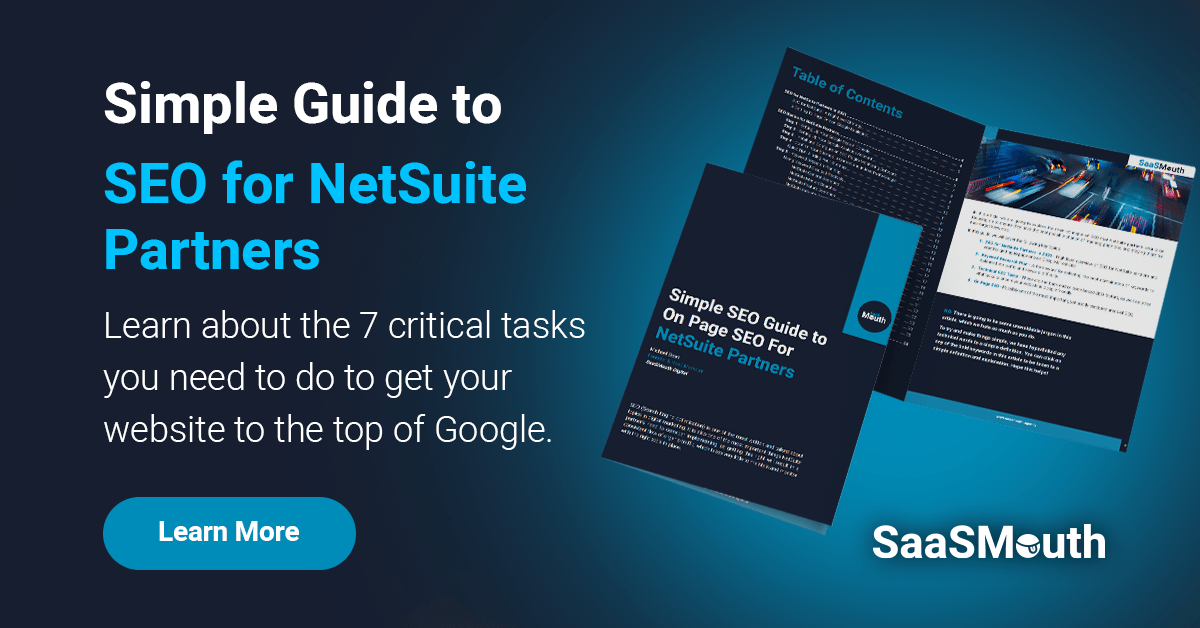The Importance of Keyword Research For NetSuite Partners
Setting the Foundation for Your NetSuite Practice's Digital Marketing Success.
Keyword research is the process of finding the right words and phrases to target on your website. It’s essential for NetSuite Partners to do keyword research before they create any kind of online content, as it will help them determine which keywords are the most relevant to their prospects and which ones have the most traffic potential.
There are a number of different factors that go into a good keyword plan, including the competition for each keyword, the monthly search volume for each keyword, and the average cost-per-click (CPC).
Once you have a list of targeted keywords, you can begin using them in your website content as well as other digital content like blogs and articles. One important thing to keep in mind when doing keyword research is that you shouldn’t focus on just one or two keywords. You should target a variety of keywords that are relevant to your prospect’s industry and that have high traffic potential. This will help you attract more visitors to your website and increase your chances of ranking higher in search engine results pages (SERPs).
1. Google AdWords Keyword Planner
The Google AdWords Keyword Planner is one of the most popular tools for doing keyword research. It’s a free tool that’s available to anyone who has a Google AdWords account. The AdWords Keyword Planner lets you see the search volume and competition for any keyword, as well as the average CPC for that keyword.
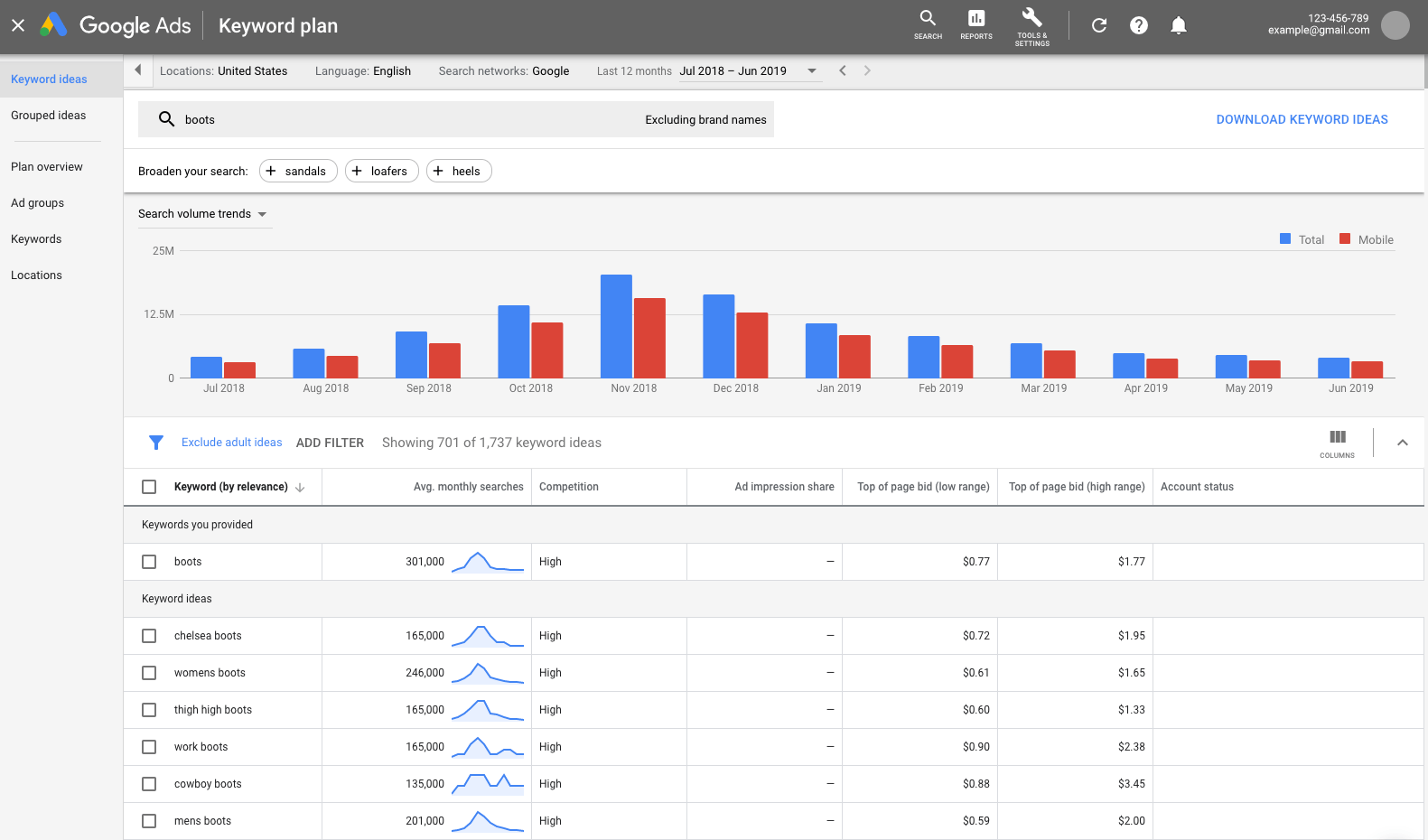
2. Google Trends
The Google Trends tool is a useful tool that is also free. It lets you see how popular a certain keyword is over time. This can be helpful for determining whether a particular keyword is trending up or down.
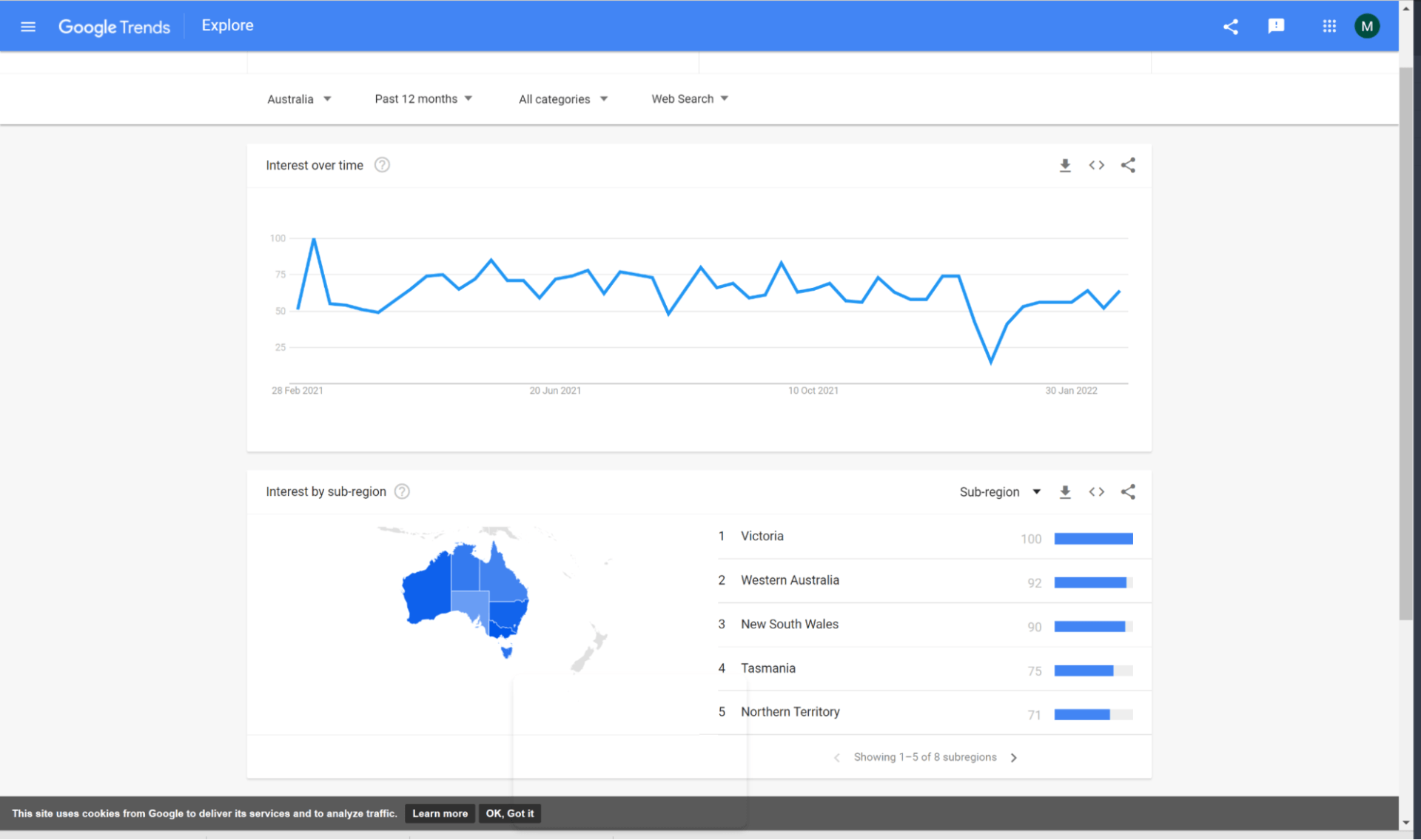
3. Ubersuggest
Another excellent option for keyword research is Ubersuggest. It’s a free program that uses machine learning and AI to build a list of core keywords and related terms.
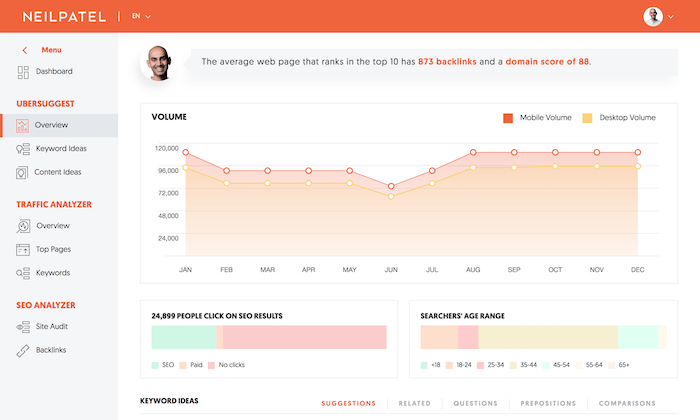
4. SEMrush
SEMrush is a paid tool that can be used for doing keyword research. It gives you comprehensive information on the competition for each keyword, as well as the CPC for each keyword. You can also search competitor websites to identify keyword gaps and get inspiration for different keyword group categories.
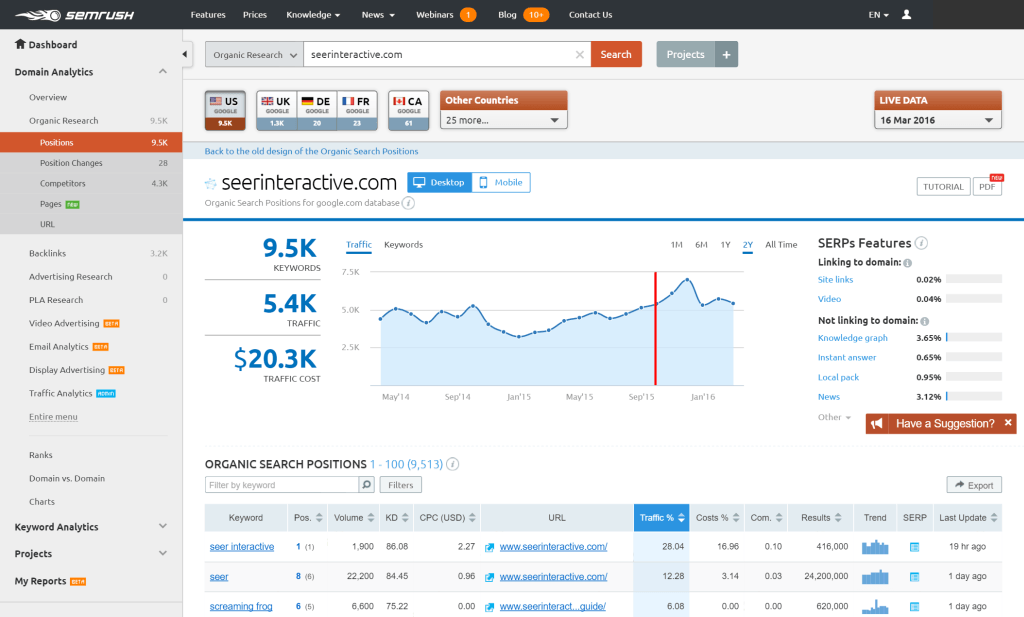
5. Keywordtool.io
The Keywordtool.io tool is another paid tool that can be used for keyword research. This tool can also be installed as a chrome app making it easy for you to see keyword data as you naturally search in google.
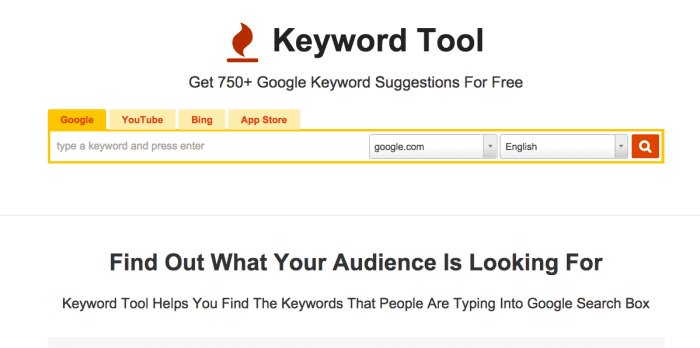
6. Spyfu
The Spyfu tool is a paid tool that gives you information on the competition for each keyword, as well as the AdWords budget for each keyword. This can be helpful for determining how much money you’ll need to spend to compete for a certain keyword.
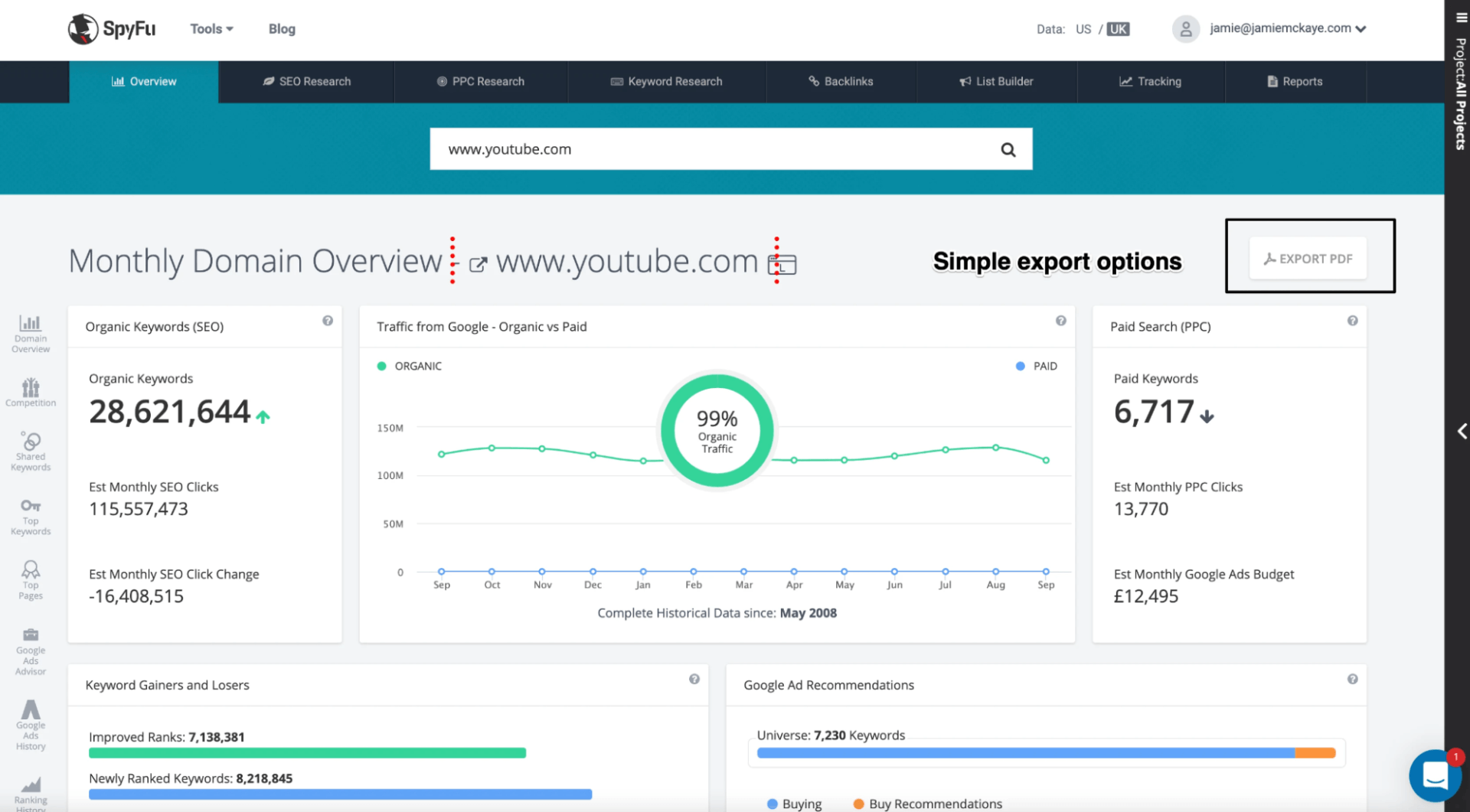
7. Moz
The Moz tool is again a very comprehensive paid option that offers a variety of different tools for doing SEO and keyword research. It includes a Keyword Explorer tool that helps you find keywords related to your target industries, as well as a SERP Checker tool that lets you see how your website is ranking for different keywords.

8. ahrefs
The AHrefs tool is considered the best tool on the market for keyword research, but it might be a bit much for the average NetSuite partner to commit to. However, there is a free option with limited functionality if you are interested in checking it out.
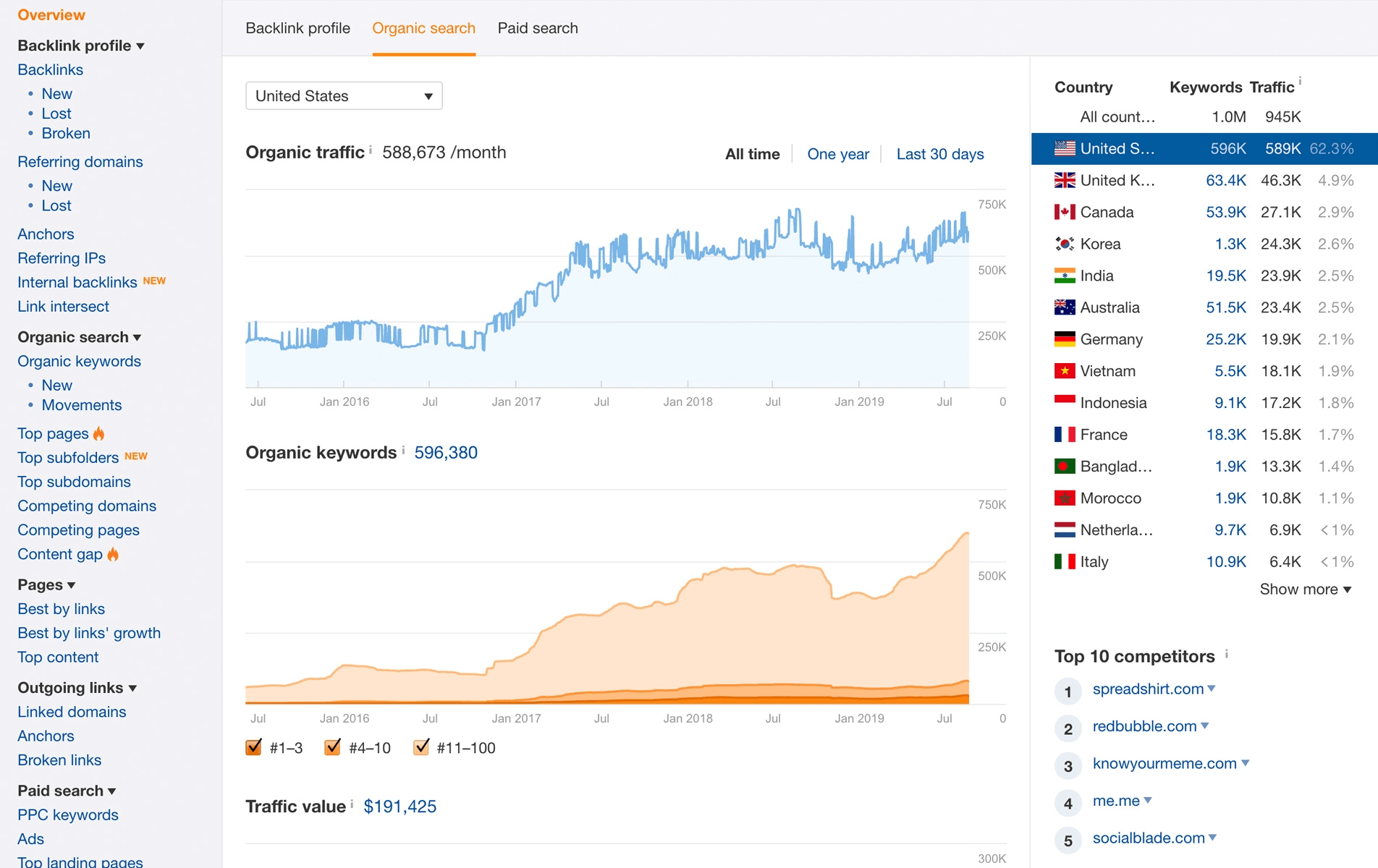
What are prospects searching for ERP actually Googling?
Brand Related Keywords:
Brand related keywords relate to searches searching for a specific software, in this case NetSuite. However, searchers may not yet be aware of NetSuite, and as such, would be googling for competitors software packages such as Microsoft Dynamics, Sage or SAP etc.
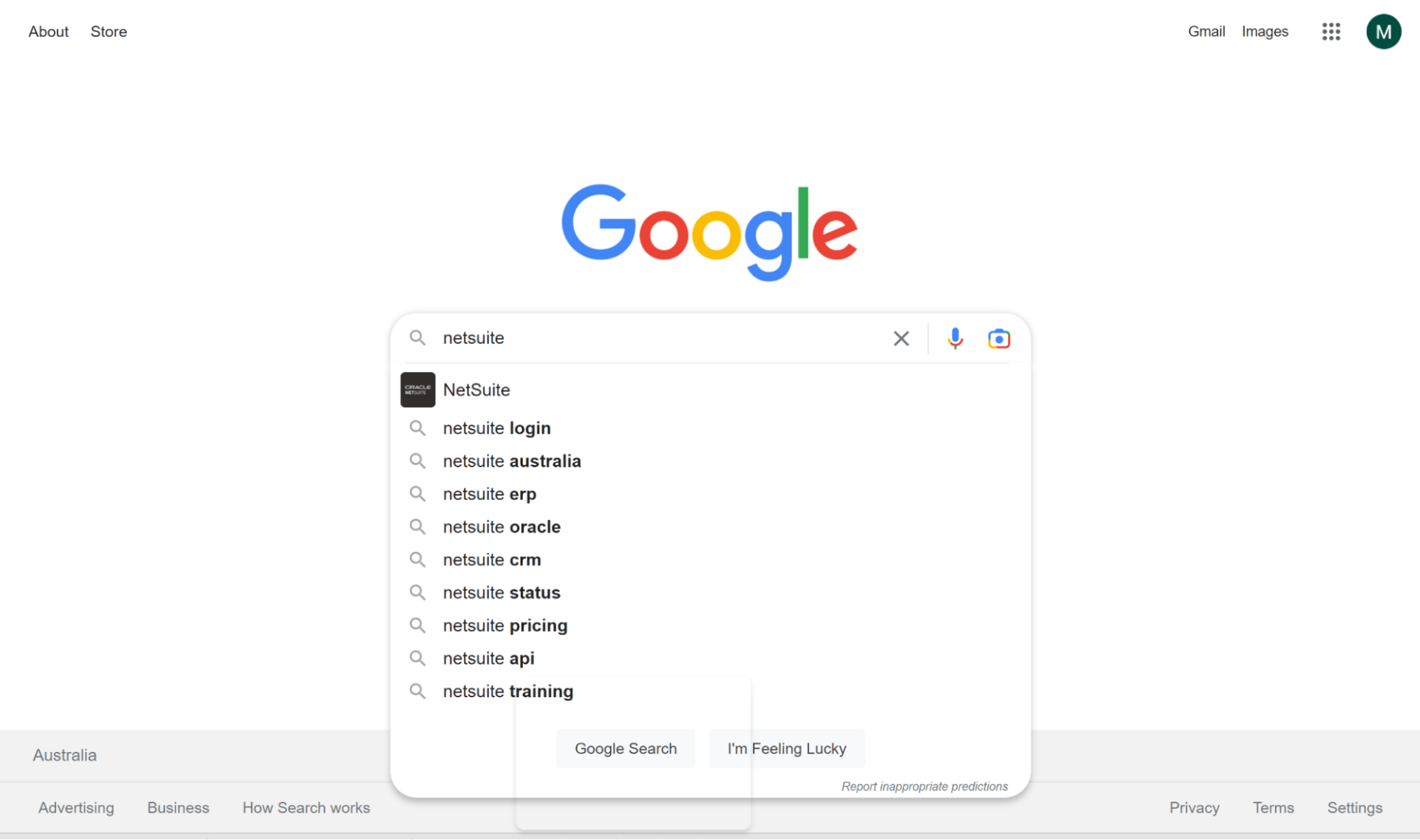
Examples
NetSuite ERP system, NetSuite business software, NetSuite accounting software, NetSuite financial software, NetSuite manufacturing software, NetSuite CRM, NetSuite supply chain management, NetSuite inventory management
Software Type:
Software type searches relate to high level names of software types. These catch all searches are often the hardest to rank for, however it is possible with quality content and landing pages highly optimised for these specific terms.
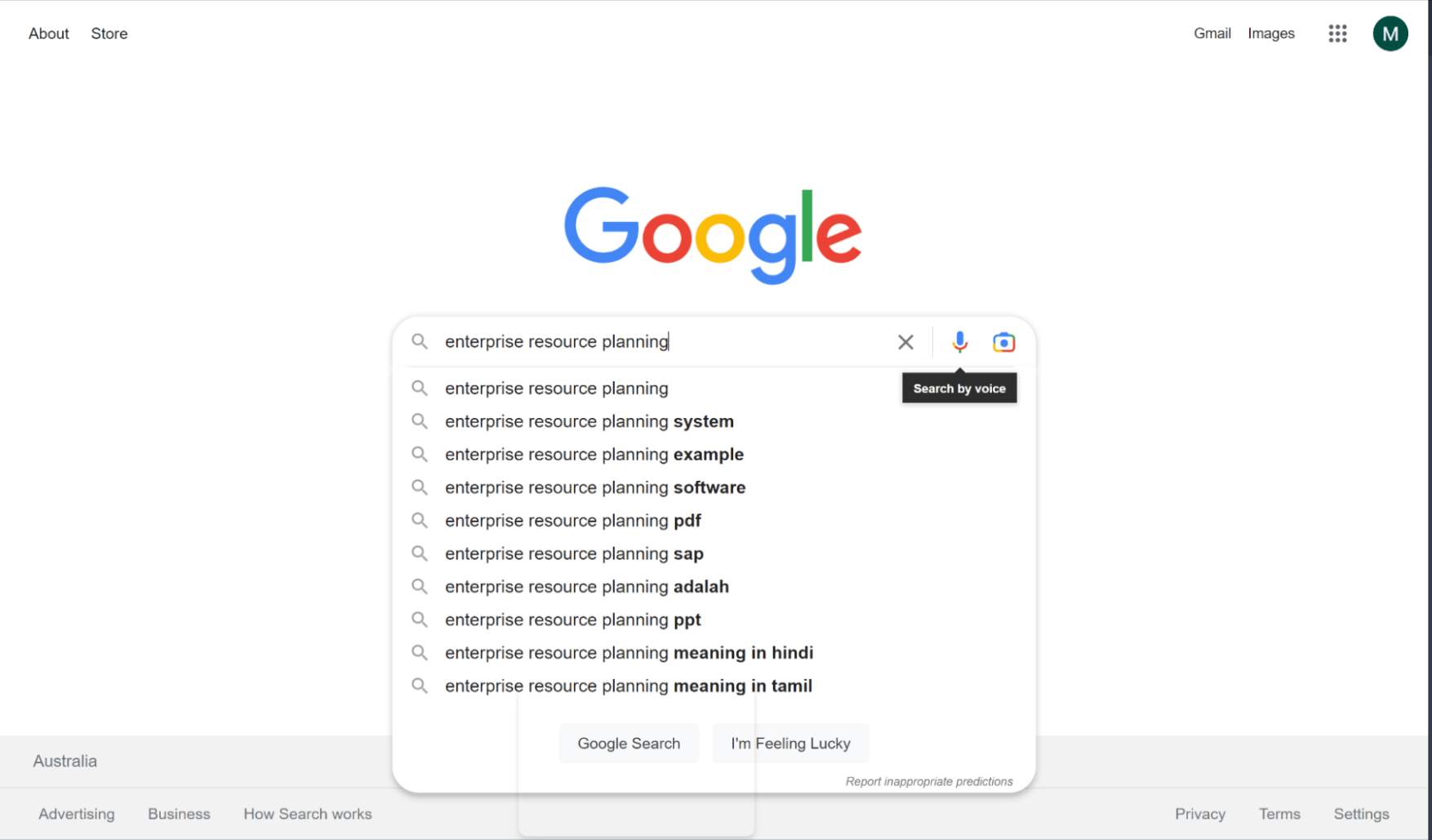
Examples
ERP, enterprise resource planning, business software, accounting software, financial software, manufacturing software, CRM, customer relationship management, supply chain management, inventory management.
Module Level Searches:
Many searchers are wanting information on specific modules of NetSuite and are searching directly for that module.

Examples
NetSuite ERP modules, NetSuite software modules, NetSuite accounting module, NetSuite financial software module, NetSuite manufacturing module, NetSuite CRM modules, NetSuite supply chain management modules, NetSuite inventory management modules.
Vertical Markets:
Many people, when searching for software add their industry to their search criteria in order to get results more closely aligned to their vertical.
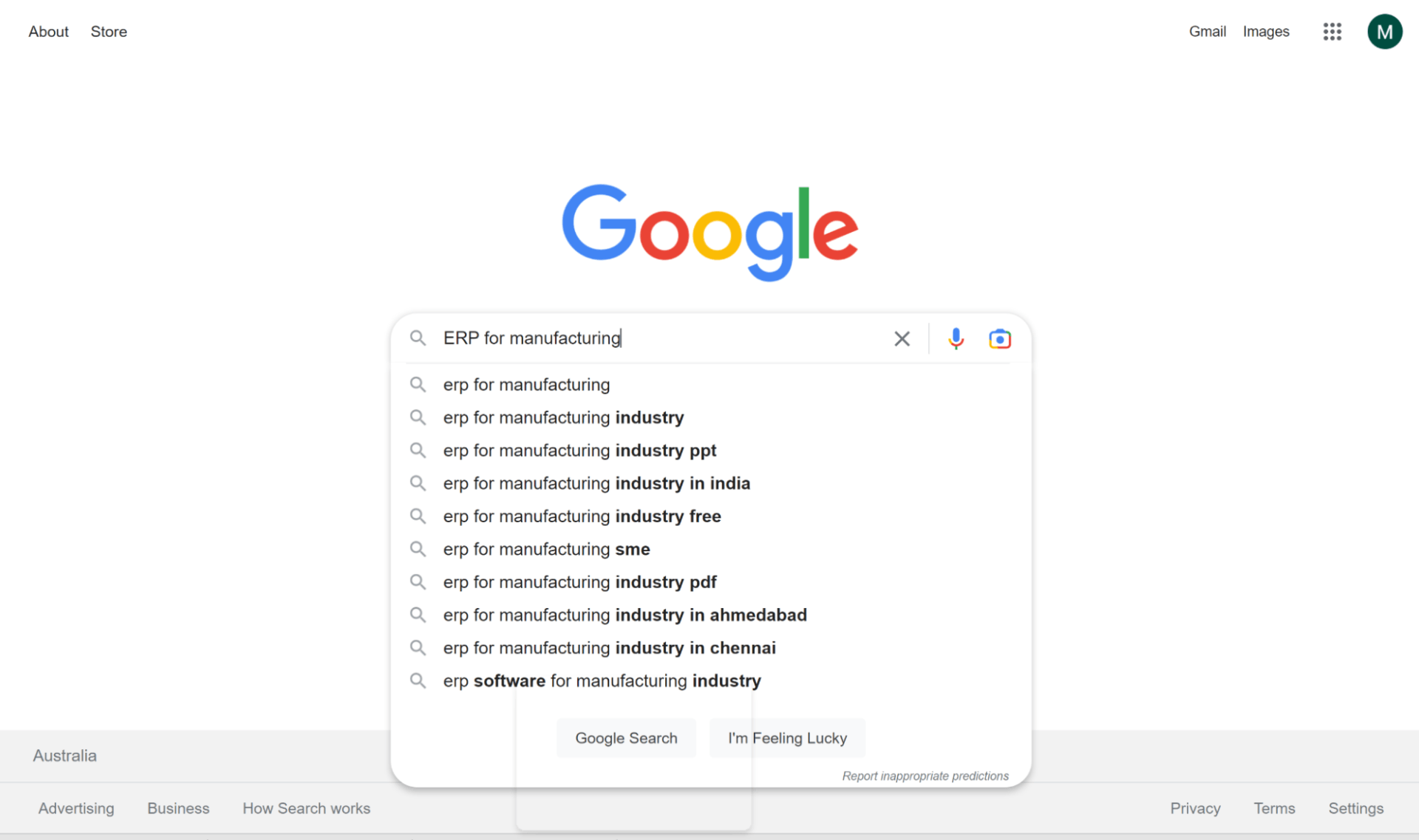
Examples
ERP for accounting, ERP for manufacturing, ERP for retail, ERP for ecommerce, ERP for wholesale distribution.
Micro-Vertical Market:
One of the best ways to increase your web traffic is to target highly specific micro-vertical related search. These are searches where the searcher is looking for a solution to a very specific problem.
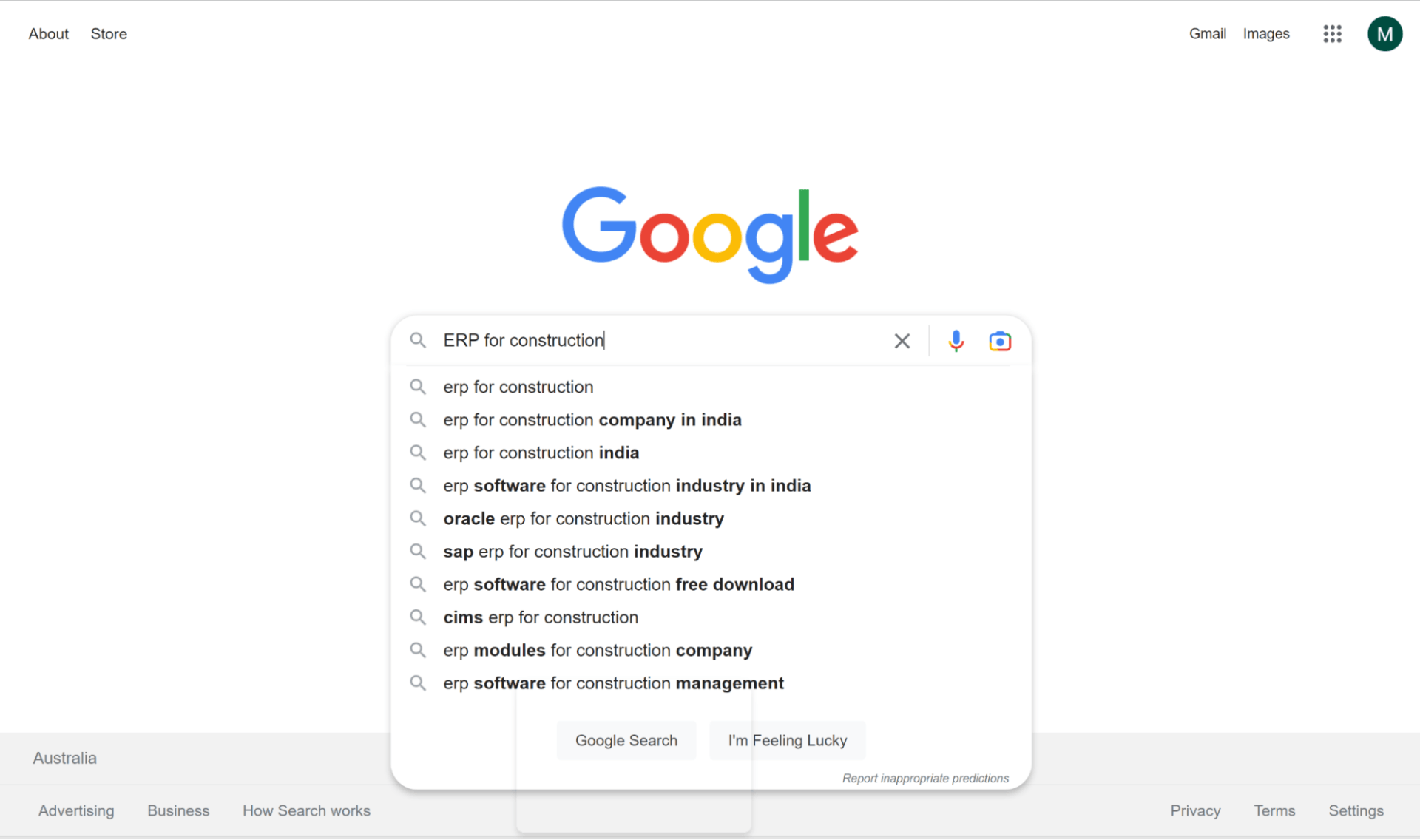
Examples
ERP for construction, ERP for automotive, ERP for food and beverage, ERP for health care, ERP for non-profit, ERP for education, ERP for government.
Location Searches:
People also search for services located in their city, state or country. This is most true of prospects searching for local implementation and support partners.

Examples
NetSuite ERP United States, NetSuite ERP Canada, NetSuite ERP United Kingdom, NetSuite ERP Australia, NetSuite ERP Germany, NetSuite ERP France, NetSuite ERP Spain, NetSuite ERP Italy, NetSuite ERP Netherlands.
Dang, Anything else?
This is by no means an exhaustive list. Some additional search categories that SaaSMouth explores when creating keyword strategies for our clients include Business Size, NetSuite Features, Common Pain Points, Business Problems, Role Specific Searches, Price, Search Intent, Funnel Stage and more.
How do I use my Keyword Plan?
Once you have gone through the process of documenting what your prospects are searching for, it’s time to ensure your website structure, landing pages and articles are answering these queries with high quality, engaging, long form content.
In 2022, there are hundreds of factors that impact SEO performance, however in our opinion, one of the biggest keys to success is creating long form content written specifically to satisfy a single target keyword.
When you are creating your website, landing pages and blog articles, make sure to target one or two of the keywords from your plan. Write content that is highly engaging and helpful to your prospects, while also including those keywords throughout the piece. You should also include them in the meta title and description, and URL slug if possible.
When you are finished, your content should be good enough for people to not only want to read it, but also share it with their friends and colleagues. And that is the key to SEO success – creating content that people not only want to find, but also want to promote through linking back to your website.
What are the benefits of conducting keyword research for NetSuite partners?
Here are some benefits having a solid keyword plan:
Gives You Direction
NetSuite keyword research helps you focus your NetSuite marketing efforts. It shows you what NetSuite topics, NetSuite products and NetSuite services are relevant to your audience so that you can better understand the overall search process.
Makes Use Of Your Time Efficiently
Finding keywords relevant to your prospects search intention can be very time consuming as there are so many different angles to consider and factor in. Concentrate your efforts on finding high search volume, low competition keywords to focus on first.
Rank Higher Quicker
Targeting keywords that have lower competition means you’ll have a better chance of being on the first page of Google search results for NetSuite customers who are looking for NetSuite products or services like yours. Long-tail low volume keywords are easiest to rank for.
What Should NetSuite Partners Avoid When Conducting NetSuite Keyword Research?
In addition to all the benefits of NetSuite keyword research, there are also a few things that NetSuite marketers should keep in mind when they’re finalising their keyword plan.
Avoid Keywords That Are Too Competitive
NetSuite related searches are highly competitive. Both NetSuite Direct and the channel partner community are all competing for the same traffic. Sometimes there is wisdom in accepting what you cannot change, and target keywords that are less competitive.
Avoid Trying To Rank For Too Many Keywords
A common mistake that businesses make is targeting too many keywords. When you’re trying to rank for a large number of them, you’ll struggle to produce content that is high quality and engaging enough to rank well. Try to focus on targeting just 10 to 20 keywords at a time. Focus brings results.
Don’t Forget to Continually Review Your Plan
Things change quickly in search. It’s a good idea to make time to continually review your keyword plan and ensure it still aligns with your core strategic marketing goals. If your business changes focus, or decides to tackle a new market, ensure your keyword plan is updated to reflect this.
In Conclusion
NetSuite keyword research is essential for businesses who want to rank higher in Google search results and reach their target audience. When conducted correctly, it provides direction for your marketing efforts, makes use of your time efficiently and helps you achieve high rankings quickly.
By avoiding keywords that are too competitive and focussing on those that have lower competition, you’ll be able to rank your content higher on Google search results pages. Additionally, it’s important to continually review your keyword plan to ensure it aligns with your business goals.
Interested in Partnering with SaaSMouth?
SaaSMouth is a leading NetSuite focussed marketing agency that provides expert guidance and support to NetSuite partners of all sizes. Our team of experienced marketing professionals have a deep understanding of how to generate leads and increase web traffic through effective keyword research and execution, specific to the NetSuite platform. If you would like more information on how SaaS Mouth can help you improve your website’s search engine rankings, please contact us today.

Book A Free 30 Minute Consultation with Our NetSuite Marketing Expert
Michael Dean
NetSuite Marketing Expert
Follow Us on LinkedIn For More NetSuite Marketing Advice
Michael is a NetSuite marketing specialist, with over 10 years of experience in designing, planning, creating and executing marketing campaigns that drive traffic, generate leads and get results. We work with NetSuite Partners worldwide to help them define their micro-vertical targets, design their NetSuite solutions and create digital marketing engines that move away from “random acts of marketing” and towards strategic, repeatable and measurable results.
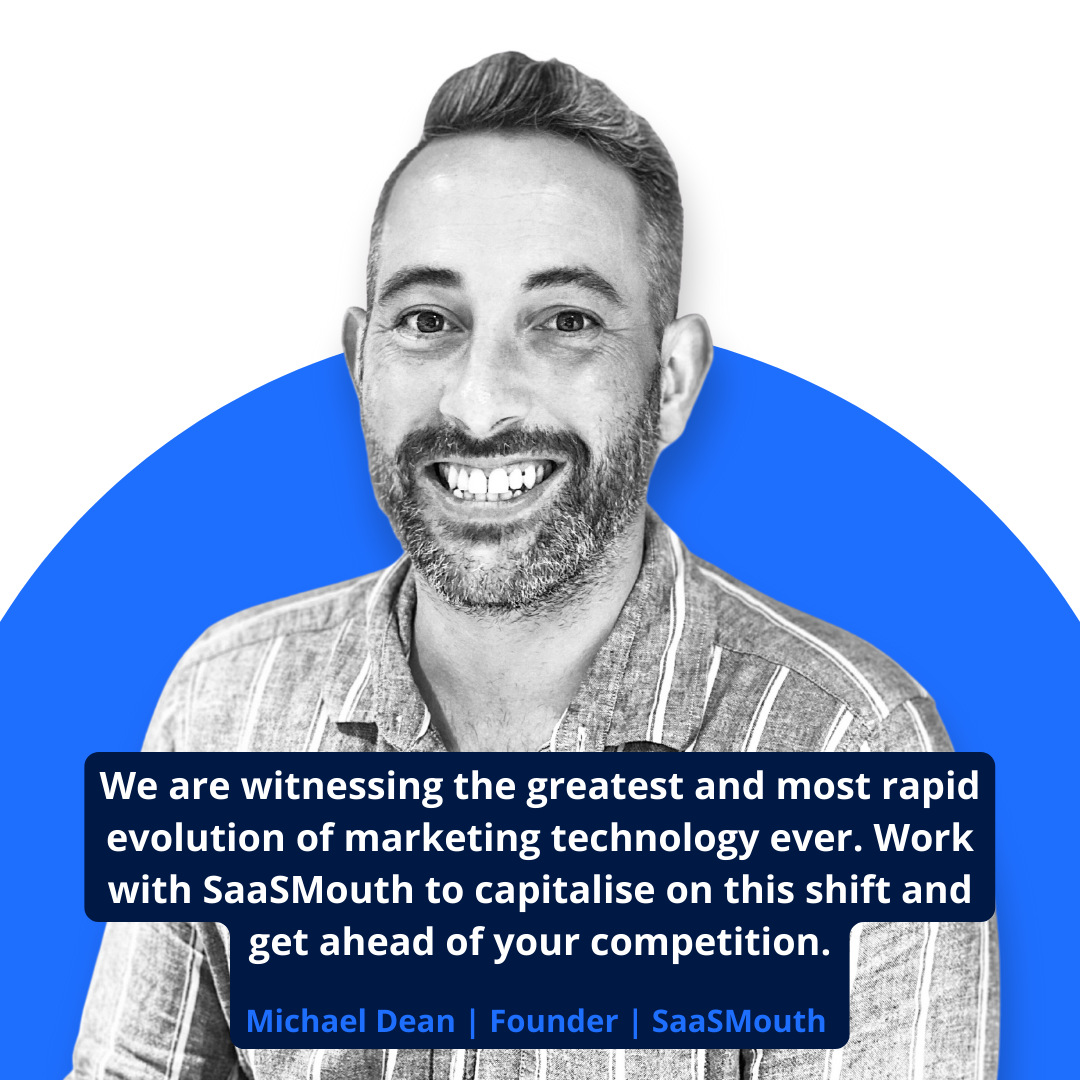
Let's Connect
Michael Dean
Head of Content & Founder, SaaSMouth
Michael Dean is the founder of SaaSMouth, a cutting-edge digital marketing agency dedicated to empowering SaaS companies and ERP partners with the power of AI, automation, and generative technologies. With twenty years of experience in digital marketing and ERP sales, Michael has developed a deep understanding of the unique challenges faced by SaaS Software vendors and ERP resellers and has devoted his career to creating innovative solutions that help them thrive in the digital space.
Recognising the immense potential of artificial intelligence and automation in marketing, Michael founded SaaSMouth to bridge the gap between traditional marketing approaches and the rapidly evolving landscape of the software industry.
Under Michael's leadership, SaaSMouth has become a pioneer in its field, leveraging state-of-the-art AI-driven tools to provide personalised, data-driven marketing solutions that maximise ROI and drive exponential growth for clients.



